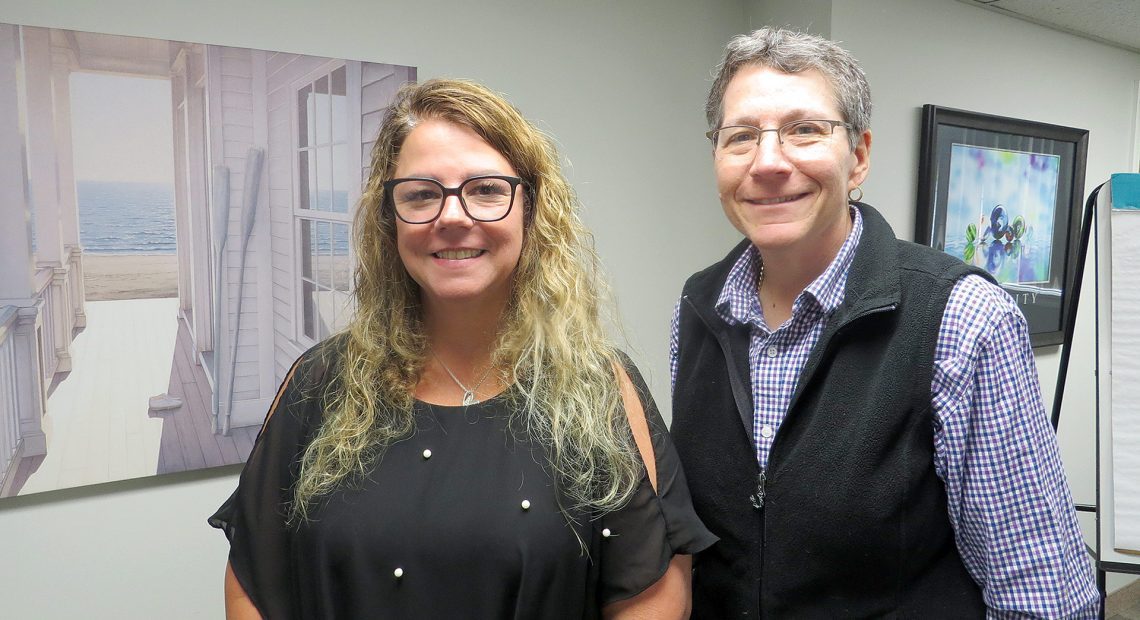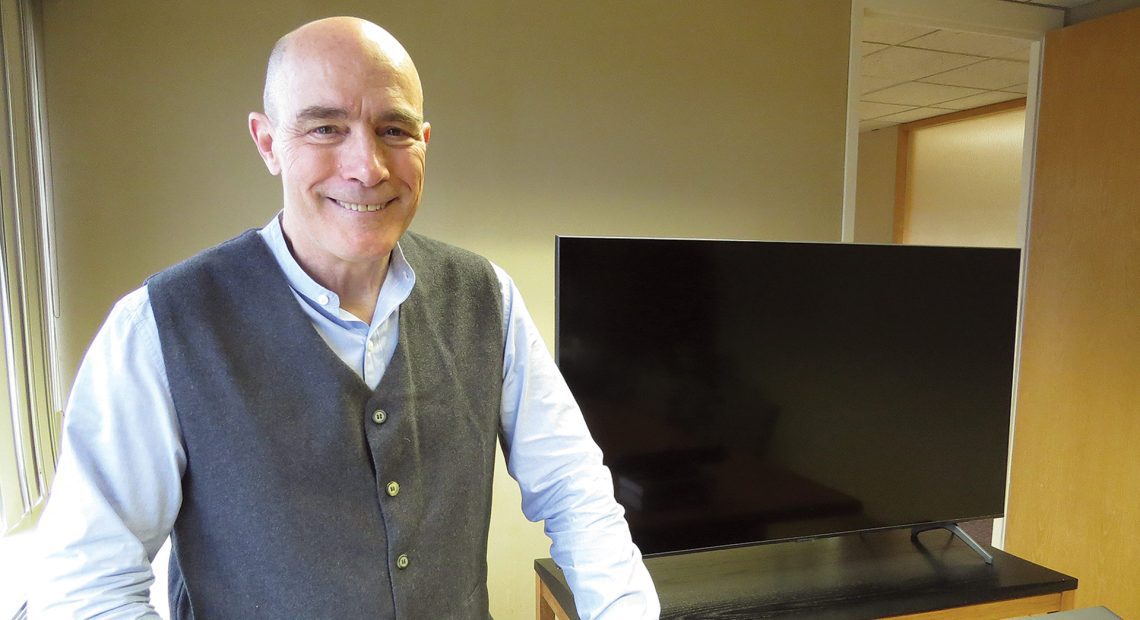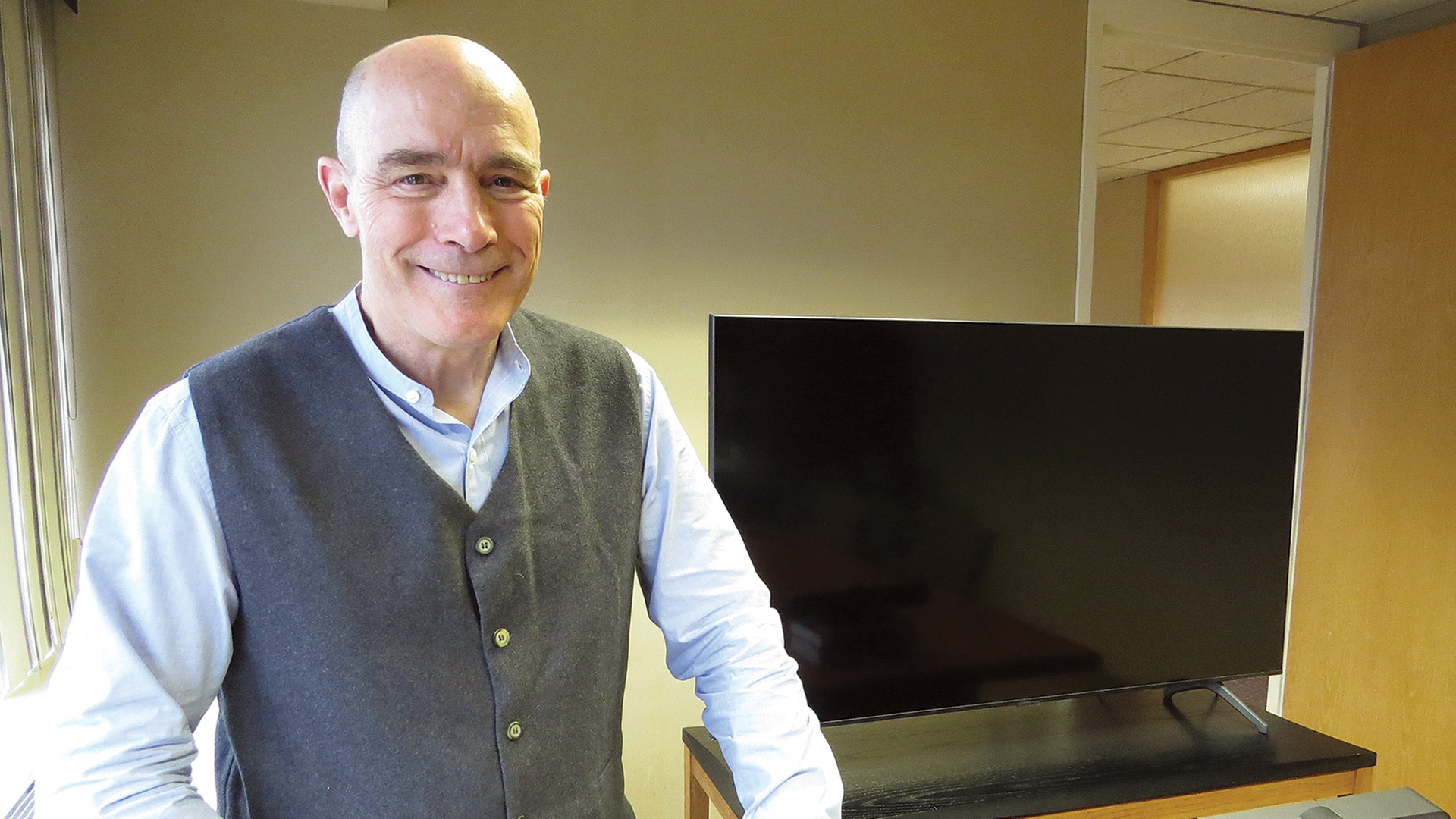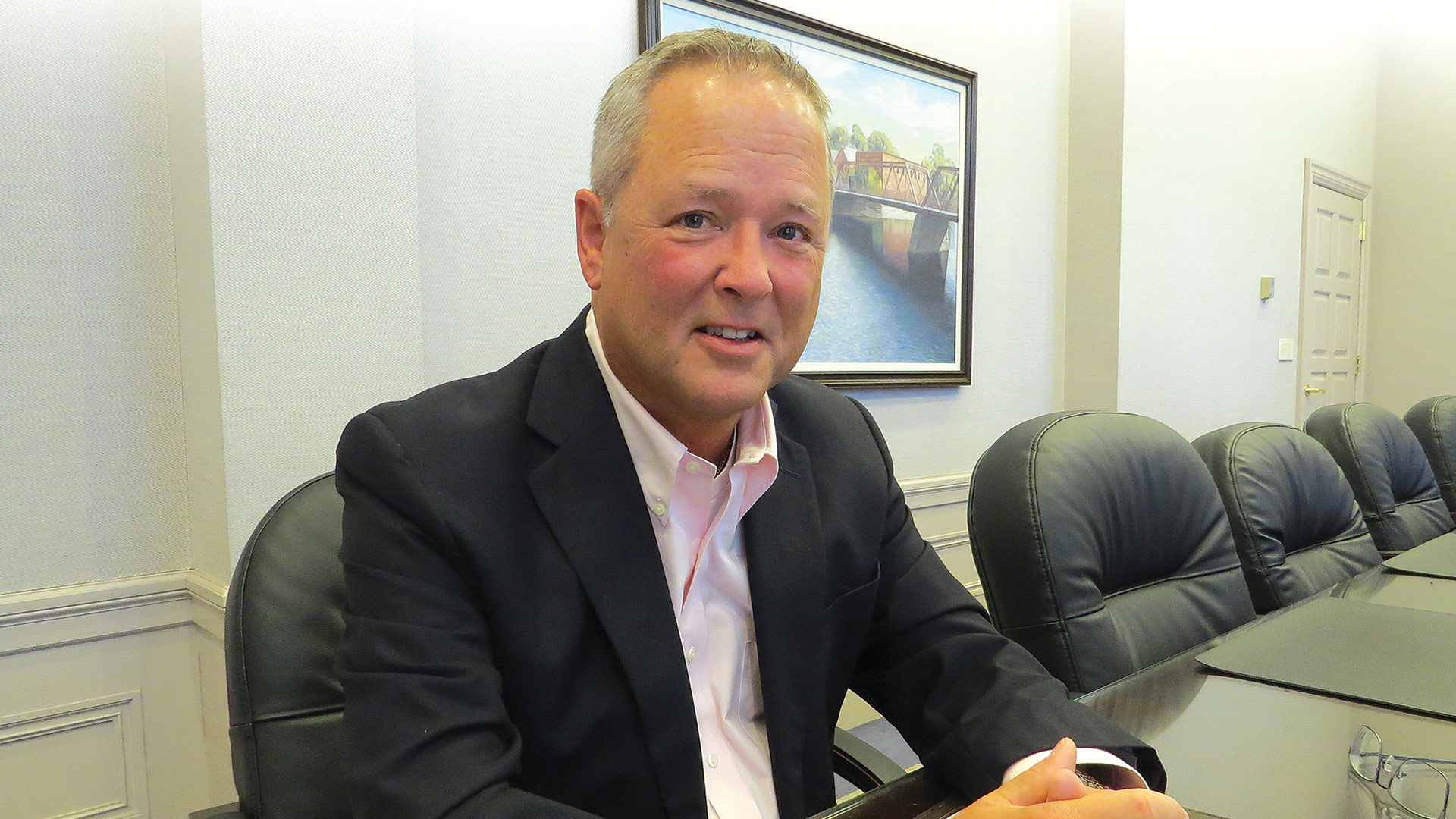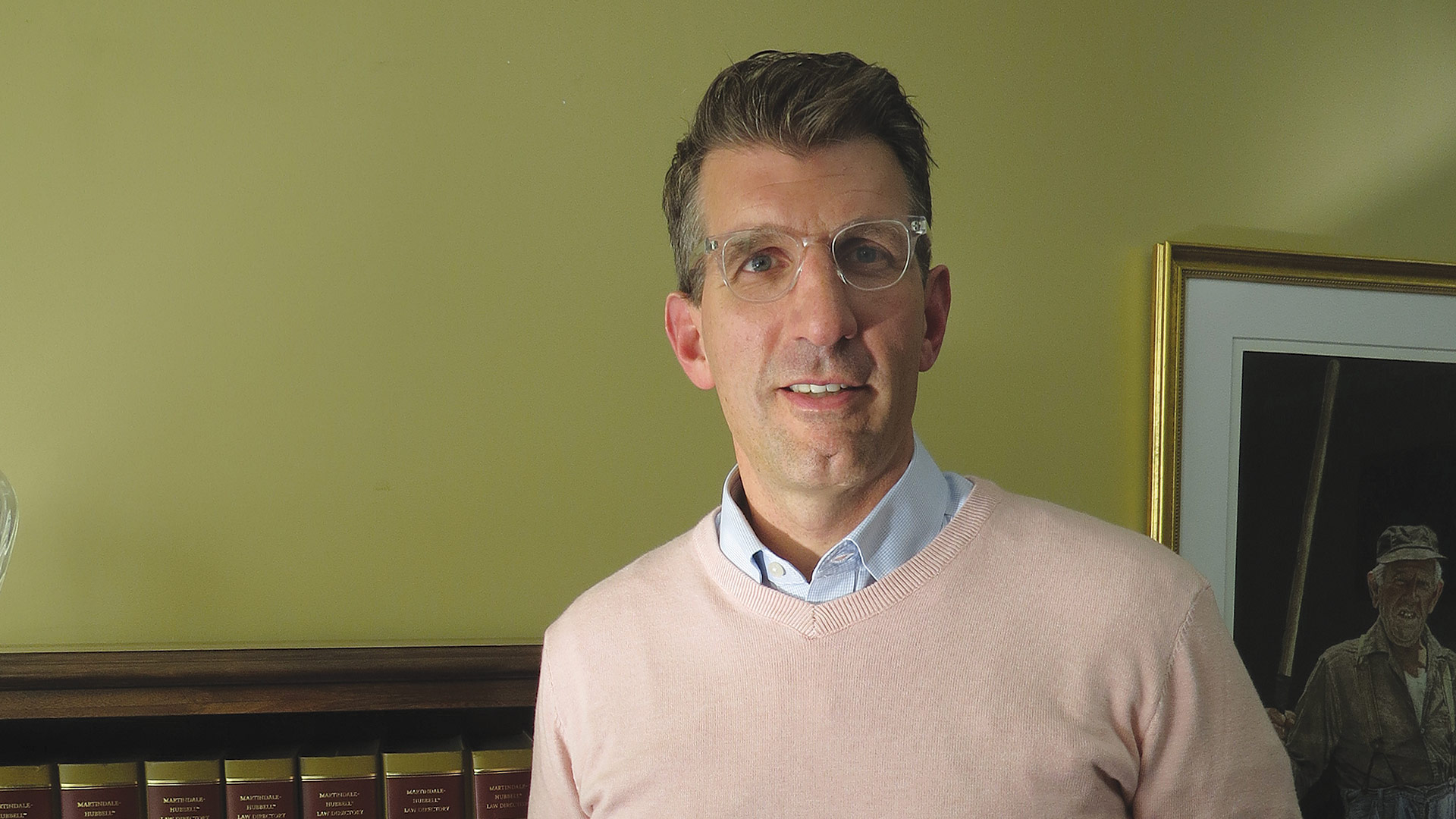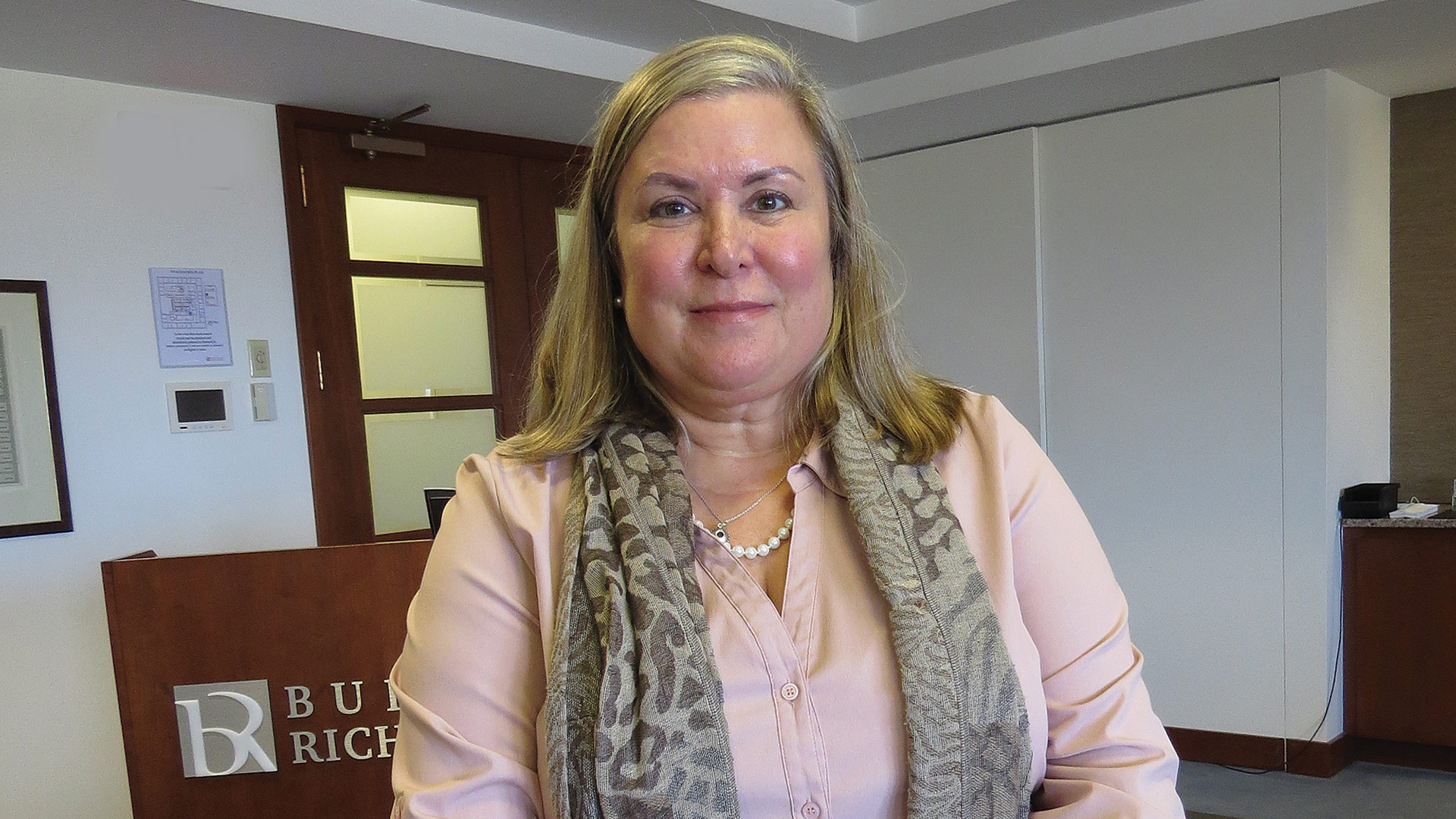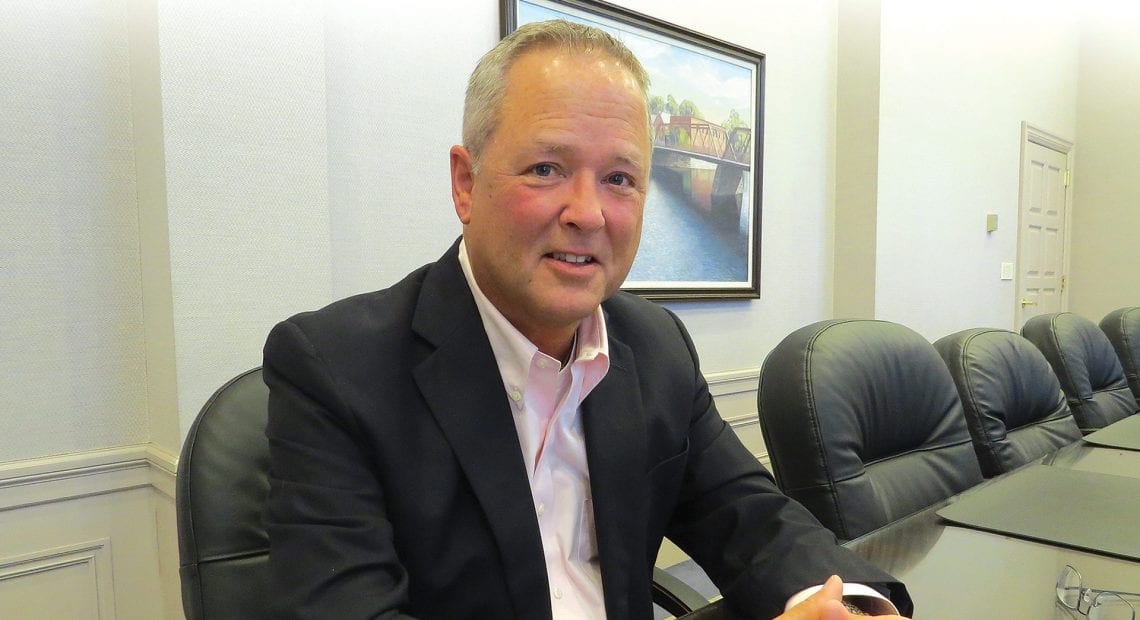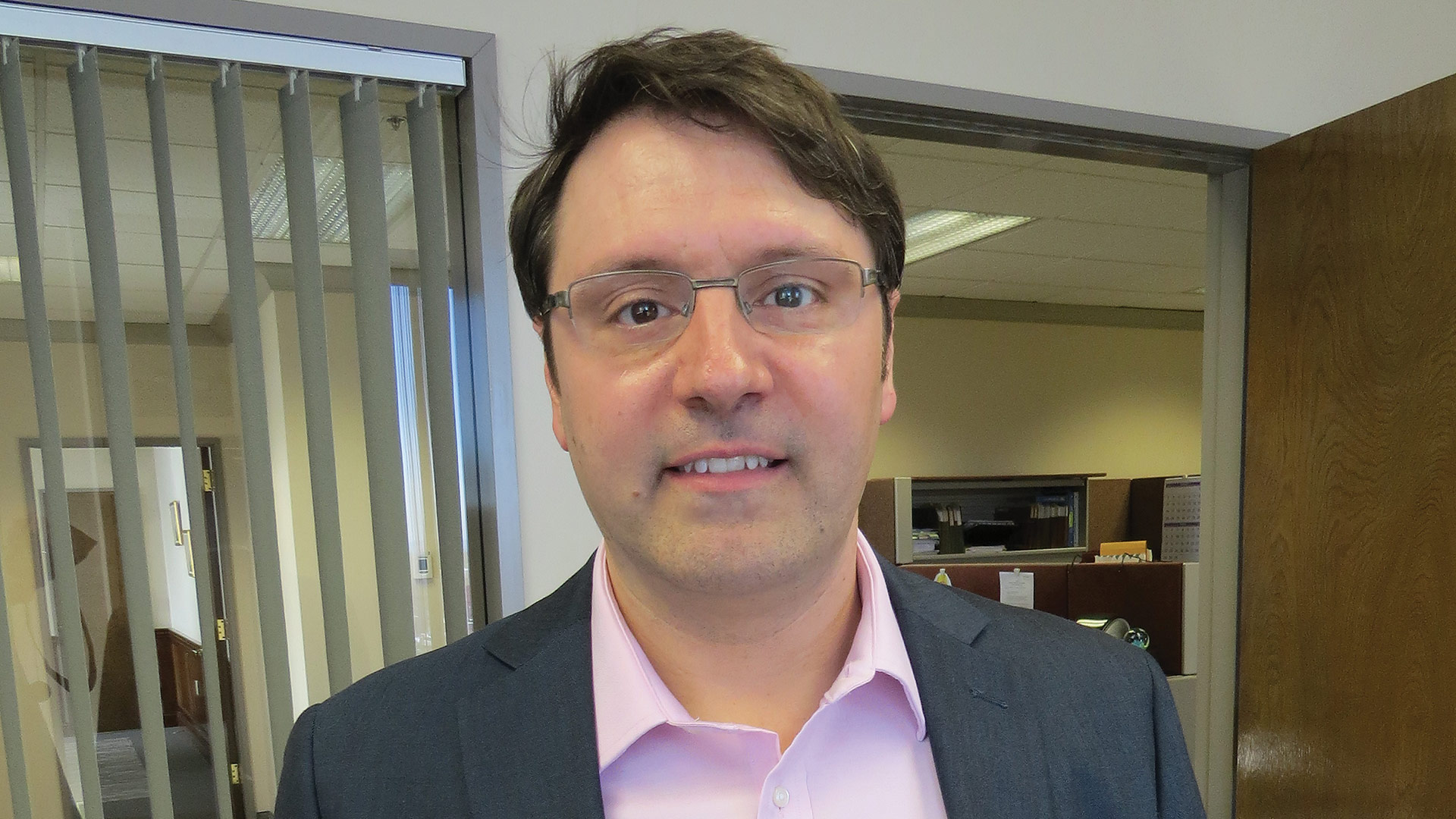Firm Resolve

Julie Quink (left) and Deborah Penzias, partners at Burkhart Pizzanelli.
Julie Quink says she’s often asked about the name of the company she now leads with her partner, Deborah Penzias.
And that’s understandable, given that neither one is named Burkhart or Pizzanelli.
Those were the names of the founders, Quink explained, adding that the firm’s name has become a respected brand over the past 37 years, so she and Penzias saw, and continue to see, value in maintaining it, just as many other accounting and law firms have kept the names of their founders over the door.
“It’s such a brand, one that people across the region know,” she told BusinessWest, adding that modern technology has added an intriguing and sometimes fun twist to the equation.
Indeed, when those from the firm call, what shows up on many of today’s phone systems and their caller-ID programs is ‘Burkhart Pizza.’
“There isn’t enough room for the full name — it cuts off the ‘nelli’ part,” said Quink with a laugh, adding that some surprised call recipients will respond with, “but I didn’t order a pizza.”
“We had decades worth of tax legislation in just a few years.”
While pepperoni with extra cheese isn’t on the menu, a full menu of accounting, auditing, and business-consulting services are, said Quink, noting that, in recent years, those consulting services have become an ever-more important part of what an accounting firm, and especially this one, can provide to its clients, whether it involves strategic planning, succession planning, or maybe just a survival strategy (more on that later).
Speaking of the past few years … they have been a long and very difficult time for all those in business, but especially those in accounting, said both partners, noting both a raft of changes to tax codes and a mountain of work that falls in the category of non-traditional — everything from help with PPP loans to assistance with applying for the Employee Tax Credit.
The phrase ‘never-ending tax season’ came into vogue to describe the past three years, and both partners put it, and similar phrases that say essentially the same thing, to use.
“We had decades worth of tax legislation in just a few years,” Penzias said. “The only constant is change; the need has been pretty heavy from the client side, and rightfully so.”
Quink agreed, noting that, starting early in the pandemic and then continuing for the next few years, those in the accounting realm, and this firm especially, have been “running on adrenaline,” as she put it.
“That’s what we’ve been doing these past few years to help clients get though, help clients with various crises and whatever needs they had during that timeframe,” she said. “Clients continue to have needs, but it seems like we’re coming off that adrenaline rush now. I’m tired, and other practitioners I talk to are tired, and our team is tired, and I think this is a result of the emotional and physical toll of what’s happened over the past few years.”
Elaborating, she mentioned challenges ranging from the additional work, constantly moving deadlines, and pressures facing clients to workforce issues and simply “finding people willing to do the work.”
Actually, the adrenaline rush wore off some time ago, she said, adding quickly that the additional work and responsibilities haven’t stopped coming.
“We’re tired,” said Quink, adding that this is one of the reasons the Burkhart Pizzanelli office will be closed on Fridays for the summer, continuing a tradition started several years ago.
Some will come to the office and take advantage of the quiet to get caught up, but many will take a three-day weekend every week from Memorial Day to Labor Day, a benefit that is much appreciated, especially after tax season and all the additional work of the past several years.
“Many of us take the time and recharge,” she said, adding quickly that, while the adrenaline rush has worn off, the firm is pushing ahead on many different fronts out of necessity — everything from strategic and succession planning to coping with a challenging workforce front.
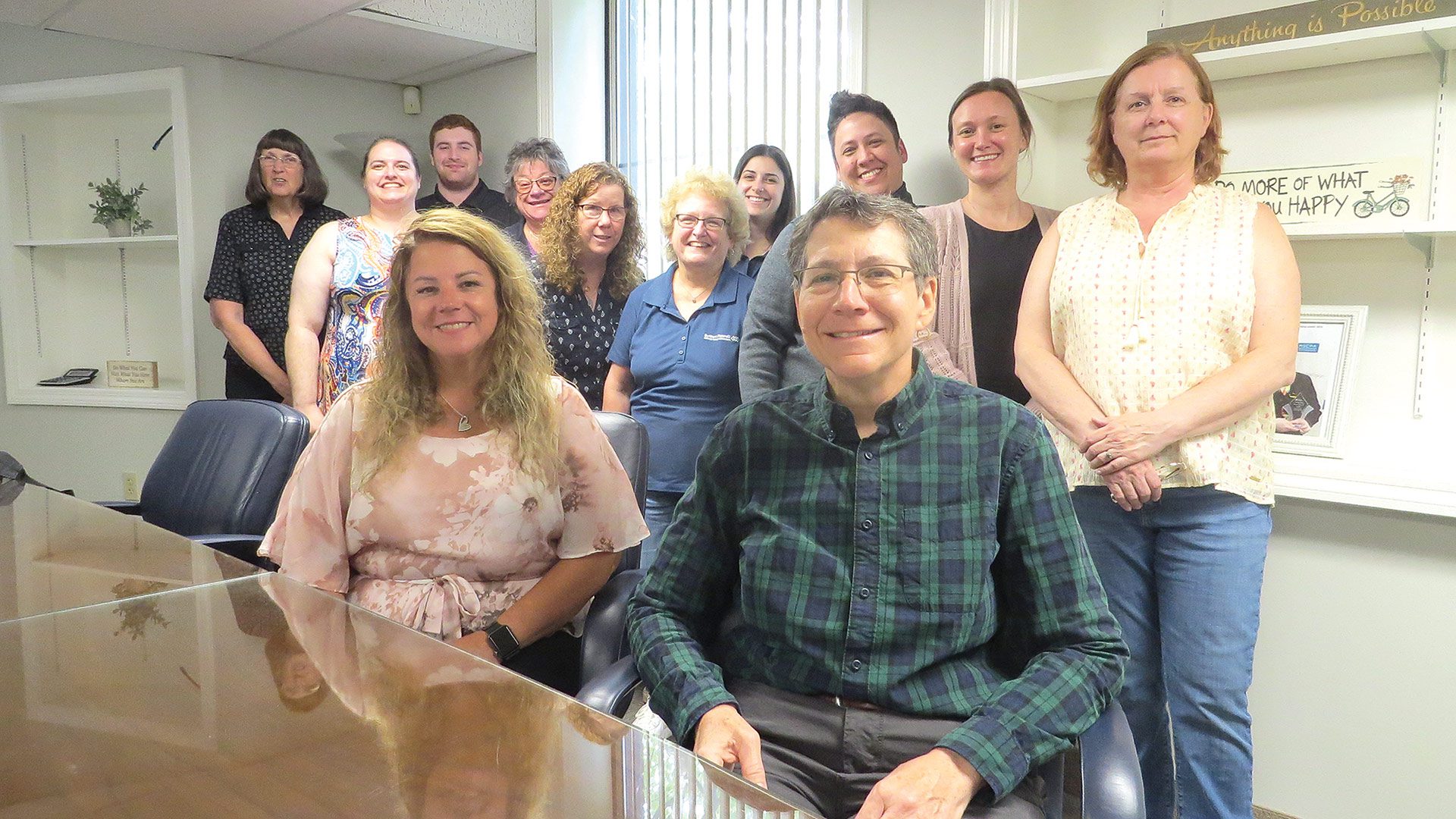
The team at Burkhart Pizzanelli has been “running on adrenaline” over the past few unusual years, Julie Quink says.
For this issue and its focus on accounting and tax planning, BusinessWest talked at length with Quink and Penzias about everything from the past few years and what they’ve meant for the firm to what’s in the business plan for ‘Burkhart Pizza.’
A Bigger Piece of the Pie
Tracing the history of the firm, Quink said it was founded in 1986 by Richard Burkhart and Salvatore Pizzanelli. In 1987, Tom Pratt joined the firm, and for the next several years, the three operated the firm under various names before settling on Burkhart Pizzanelli, a name that has stuck for all the reasons noted above.
“They developed a nice practice in the area working with many different types of industries and types of clients,” she said, adding that firm has continued to grow and evolve over the years, building on that solid foundation laid by the partners.
“It’s a really exciting time for us; we’re growing by leaps and bounds,” said Penzias. “We would love to expand our team — providing quality services for our clientele and managing the client load is one of our biggest challenges. It’s a growth time; it’s an exciting period. The younger folks are learning rapidly, and there’s a really positive atmosphere here.”
Today, the firm serves clients of all sizes and sectors, including nonprofits, healthcare, manufacturing, retail, construction, distribution, real estate, and others.
Penzias joined the firm in 1998, and Quink came aboard in 2011. The two became principals in 2013, negotiating a buyout with their first partner in 2014 and the second one in 2015. Quink became managing principal in 2015, and the last partner was bought out in 2019.
“I’m tired, and other practitioners I talk to are tired, and our team is tired, and I think this is a result of the emotional and physical toll of what’s happened over the past few years.”
Along the way, the firm bought out the Palmer practice of Steve Chiacchia, giving it two locations, including one in the eastern part of the region, Quink said, adding that most of the retired partners are still active with the firm to one degree or another.
As noted earlier, Quink, Penzias, and other members of the leadership are working on a number of fronts simultaneously.
One is strategic planning, Quink said, adding that the firm’s broad goal is to remain independent and grow, mostly in an organic fashion, although she said will explore mergers and acquisitions, to acquire talent as much as anything else.
“There are certain ways to get people to join you team, and one of them is to acquire a firm that has good, talented staff and that’s attractive,” she explained, adding that this was part of the mindset with the Chiacchia firm, which also offered a base in the Quaboag area, one she said provides ample growth opportunities.
“There’s a lot of great businesses and opportunities for us in that market,” she noted. “That office and that practice has been growing nicely since we acquired it.”
Another priority moving forward is to maintain and build upon what the partners describe as a fairly unique corporate culture, one that probably wouldn’t fit smoothly with a larger, regional firm, she said, adding that this is one reason why the founders, and now Quink and Penzias, have entertained offers to be acquired, but ultimately rejected them.
“We want to preserve this for the team,” Quink said. “We want to keep the Burkhart legacy going as long as it makes sense to do so.”
When asked to describe that culture, she said the firm is structured in many ways like a family. To emphasize the closeness of the team and how well it works together, she went back in time to the early days of the pandemic, when working remotely became the norm, even at essential businesses like banks and, yes, accounting firms.
“We’ve had the ability to work remotely for 15 years because of the software we use and how it’s cloud-based, but during the pandemic, most of our people chose to work here, and I think that’s telling,” she said, adding that firm took the necessary precautions to make sure people were safe. “I think it’s a place where people feel comfortable and where they feel they’re not just a number.
“We’re very in tune with what’s going on with our team members, with their vision, what they want, where they want to go with their careers,” Quink went on. “We’re businesslike, but we’re very much a team, and we like to be with each other.”
Topping It All
The team has been together quite a bit over the past three years and three months, said Penzias, noting that the pandemic and its aftermath have produced not only longer tax seasons, or one never-ending season, but many additional types of work that clients want and need.
Increasingly, she noted, clients are looking to their accounting firm for assistance not only with taxes and auditing, but with strategic planning and navigating the many challenges facing businesses of all sizes today, from supply-chain issues to how to navigate the recession that many prognosticators say is coming.
Quink agreed, noting that the pandemic has been a long and trying time on many levels, professionally but also emotionally. Indeed, she said the firm saw several of its clients die from COVID, including one of the patients in the Soldiers’ Home in Holyoke.
Meanwhile, this trying period generated additional work on many different levels, she said, listing everything from individuals inheriting large sums of money due to deaths from COVID to small-business owners deciding that it was time to sell their venture or perhaps merge with another.
“Our industry is rigorous, as are many others. It’s difficult to find people who want to live this lifestyle, so to speak, and work really, really hard.”
“We had commercial clients that closed because of the world turning on its end; we helped them wind down a legacy business, a family business, or transition it to someone else because they didn’t have the capacity to handle it anymore,” she recalled. “We did see an uptick in merger-and-acquisition work over the past three years, with clients deciding, as a result of the strains being put upon them by the new world, that they were done, and either we helped them find a buyer, or they found their own buyer through a broker, and we helped them negotiate the specifics of the deal.”
Things have slowed somewhat, but the firm is still seeing some activity in that realm, Quink said, adding that, overall, many clients are still struggling to fully recover and get back to where they were pre-pandemic.
Another priority for the firm is succession planning, she told BusinessWest, adding that the firm is committed to ensuring that the next generation of leaders is in place.
“We’re developing our next succession team, so when Debbie and I retire, we have our team in place to continue moving the Burkhart legacy forward,” she said, adding that this is an important assignment for any company, and one she and her term consult with many of their clients on.
Another challenging assignment is finding and retaining talent, and this is another issue to which the firm is advising clients to take a proactive approach — while practicing what it preaches.
“We’re trying to be as creative as we possibly can to recruit,” she said, adding that, while people at this firm like to be in the office, the trend in the industry — and across the workforce, for that matter — is toward remote work and hybrid models.
As a result, the firm is willing to be flexible with work arrangements, with a mix of remote work and at least one day in the office.
“We’re seeing a lot more firms requiring people to go in one or two days a week,” she said. “So what worked for someone living in Western Mass. and working for a Boston-based firm might not fit now with these changes that we’re seeing, so that might benefit us. Overall, we’re all competing for the same talent.”
Quink cited statistics suggesting fewer people are getting into the accounting field, and there are discussions ongoing within the Massachusetts Society of CPAs about how to reverse that trend.
One obvious strategy, she said, is for people like her to get into high schools and even middle schools and talk about accounting and how this business is not just about filing tax returns. Still, it is a difficult business, and its long hours and difficult tax seasons are not easy sells.
“Our industry is rigorous, as are many others,” said Quink as she talked about the workforce challenges facing this firm and all players in this industry. “It’s difficult to find people who want to live this lifestyle, so to speak, and work really, really hard.”
The Crust of the Story
Looking ahead, Quink and Penzias said that, overall, the names on the company’s door are more important than their own.
Those names speak to a long track record of excellence when it comes to serving clients not just by adding up numbers, but by helping them cope with change and challenge and seize opportunities when they are appropriate.
The caller ID on the office phone may identify them as ‘Burkhart Pizza,’ but clients certainly know and appreciate who’s on the other end of the line.



